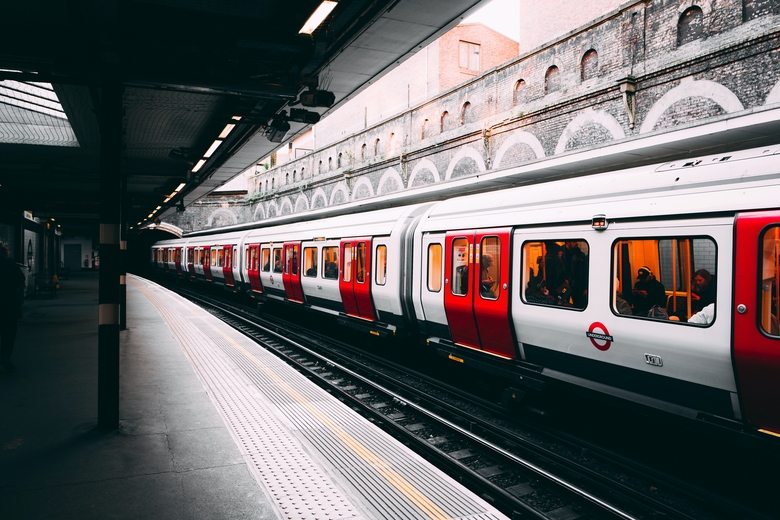The government plans to ban strikes. Transport secretary, Grant Shapps, told the Sunday Telegraph that the government plans to outlaw industrial action unless a minimum level of staffing necessary to run various services is maintained. In essence, only ineffective (and thus rather pointless) strikes will be permitted. Some might see the timing as cynical, coming when the Prime Minister is under pressure over Partygate. Workers join immigrants and the EU as the latest culture war adversaire du jour used to distract from the executive’s political travails. But this is about more than the political cycle: it represents an attack on an essential pillar of democracy.
This is hardly the first time the executive has turned its coercive gaze on organised labour. Unions, like any large and influential organisation, should be treated with a healthy scepticism. But, in the UK, organised labour has faced decades of persecution. In the 1980s Margaret Thatcher mobilised the state against the miners in a manner rarely seen outside wartime. The Mitting Inquiry revealed that police and security services devoted massive resources to covertly infiltrating unions. Indeed, far more effort was devoted to infiltrating lawful labour organisations (which were not thought to present a threat of violence) than genuine threats like the far right. The Cameron government imposed some of the most coercive anti-strike legislation in Europe.
The right to strike is essential in a democracy and is protected by international law. The Universal Declaration on Human Rights, International Covenants on Civil and Political and Economic Social and Cultural Rights, the International Labour Organisation conventions, and the European Convention on Human Rights all protect strikers. As one union leader put it, “the difference between a slave and a worker is the latter’s ability to withdraw their labour”. Unions are also essential in securing democratic rights. In the UK they played a role in securing the right for working class people to vote and protecting various civil liberties in law. The Chartists, the predecessors of the modern union movement, were arguably the UK’s first true democrats. As one US politician put it, unions:
“…represent a key institution to sustaining democratic gains. The large membership and geographic reach of trade unions often can help deepen and broaden support for democratic principles and practices within a country. It is no coincidence that in countries in which there is a free and active trade union movement the movement towards more democratic, more transparent, and more representative governance is more rapid.”
These are the words, not by Bernie Sanders or Elizabeth Warren, but Lorne W Craner, an Assistant Secretary of State under George W Bush.
Why, then, do unions provoke such a visceral animosity?
The answer is power. Unions empower workers against both the state and employers. In the UK those with money and influence tend to dominate the political debate. Big companies (particularly those propped up by state subsidy) can generally dictate the pay and conditions of their workers. By facilitating collective bargaining, unions can put their members on a more equal footing with their employers. Unions themselves are generally democratically run (albeit some more than others). Ballots for strike action are, in essence, a union-wide up or down referendum. This democratic legitimacy allows unions to speak with authority on the national stage, giving their members a collective voice that they would not have a individuals. Unions thus give ordinary people a voice in a national discourse dominated by the rich and powerful.
The ability to strike allows workers to balance out the coercive power that the state and employers can wield over them. The threat of redundancy is balanced by the threat of the collective withdrawal of labour. When companies and investors threaten to withdraw their money or jobs from the UK if the government pursues policies they don’t like, working people have their own bargaining chip. Neutering the right to strike thus strips working people of political power.
Unions (and strikes) are important because the sharing or balancing of power is an essential guarantor of a functioning democracy. They are a target because those with power rarely like to share it (and are often prepared to use it to accrue more power). When Lord Acton said, “power corrupts and absolute power corrupts absolutely”, he was referring to the danger of too much power being gathered in the hands of one person or group.
One of the most potent weapons used against strikes is misrepresentation. Strikes are portrayed as attacks on ordinary people. Yet they are one of the few ways (in our increasingly flawed democracy) that ordinary citizens can make their voices heard in a par with the powerful. Coverage of strikes rarely acknowledges that they are a last resort after both sides have failed to reach an agreement: employers/the government bear as much responsibility for strikes as the strikers. Indeed, there is arguably an inherent virtue in strikers, particularly those who sacrifice their own pay (strikers lose their wages for the days they miss) to support their colleagues.
The executive has picked an opportune time to begin its latest attack. With the rail strikes planned for the jubilee, the government is able to cast citizens engaging in collective action as unpatriotic. There is a certain irony in television pundits condemning strikers as for seeking a few more pence on the pound while simultaneously venerating a family that takes billions from the national purse by dint of birth. When we emerge from our collective red, white, and blue fugue, we may find our country has become a little less democratic.



